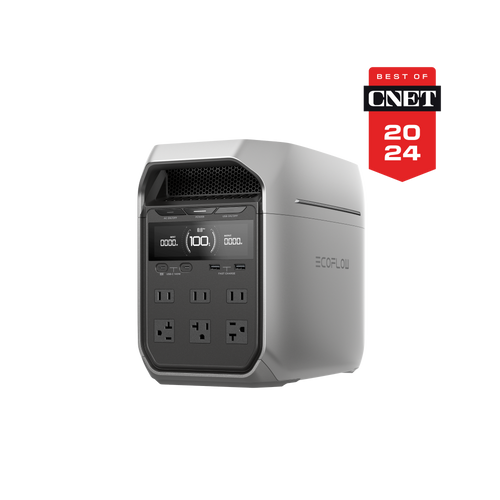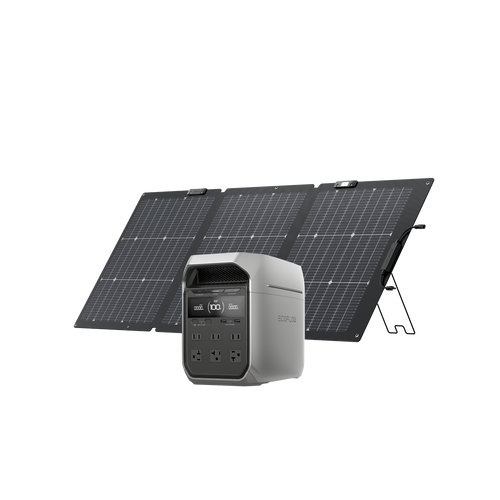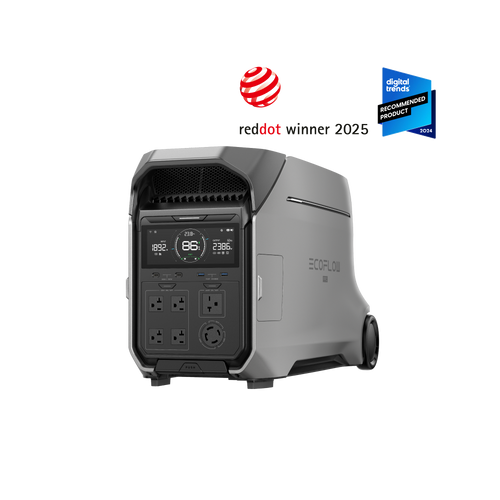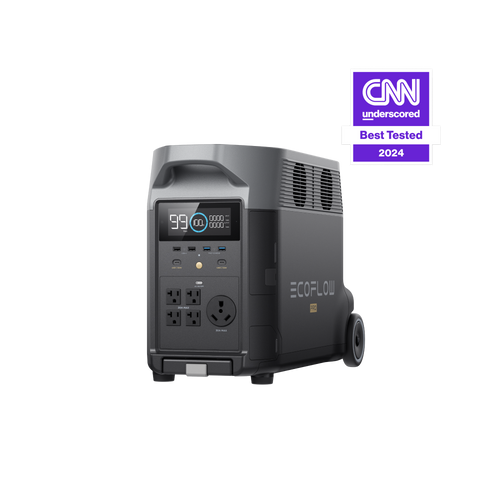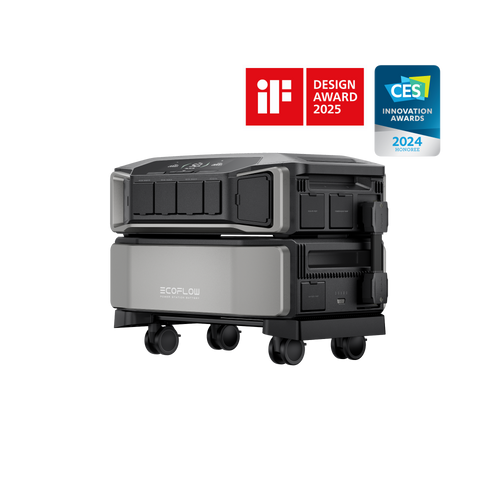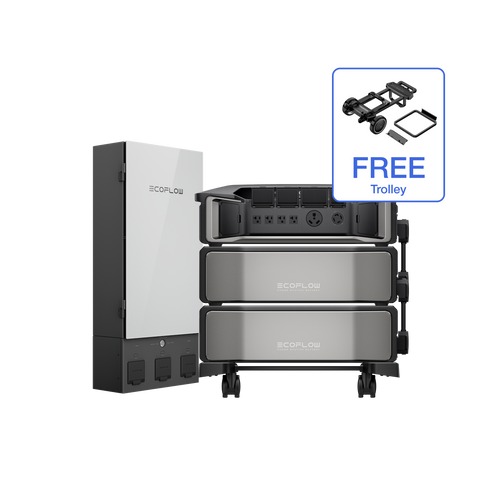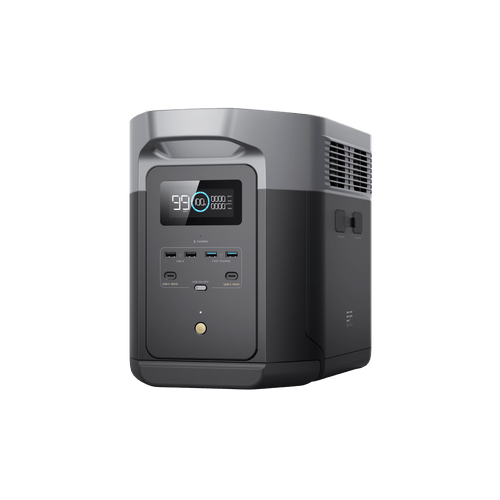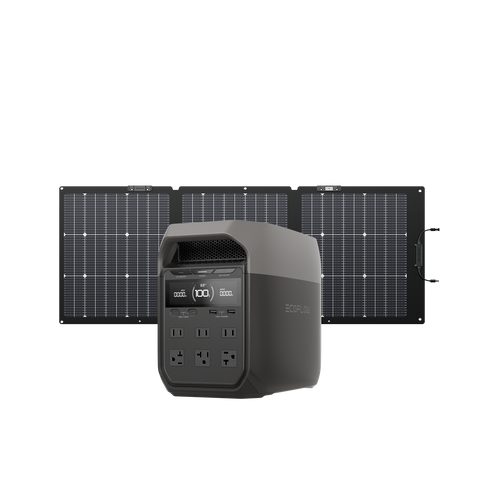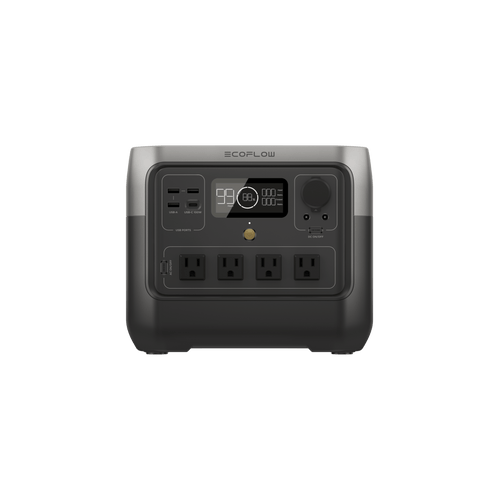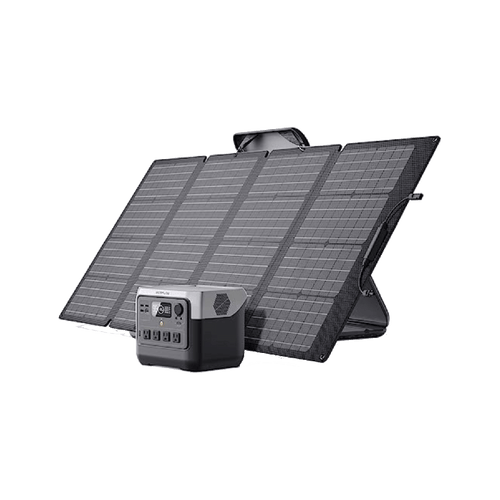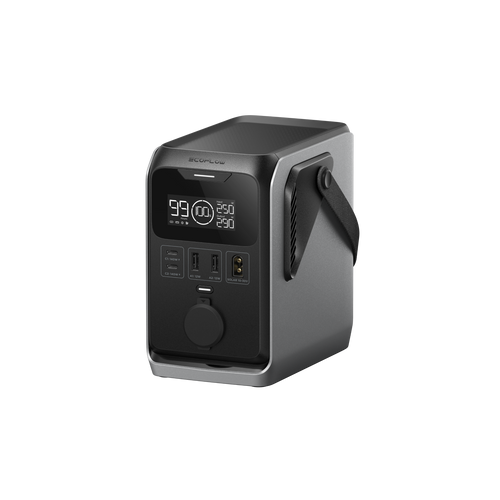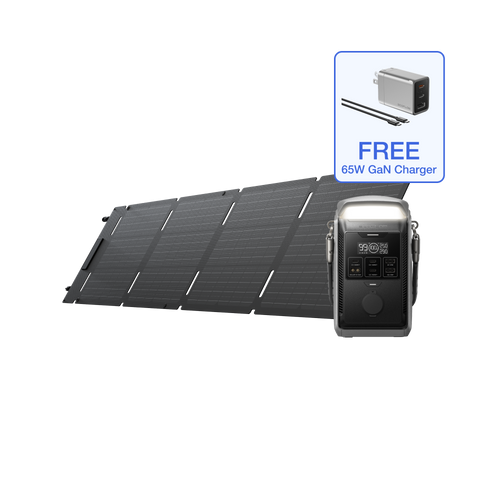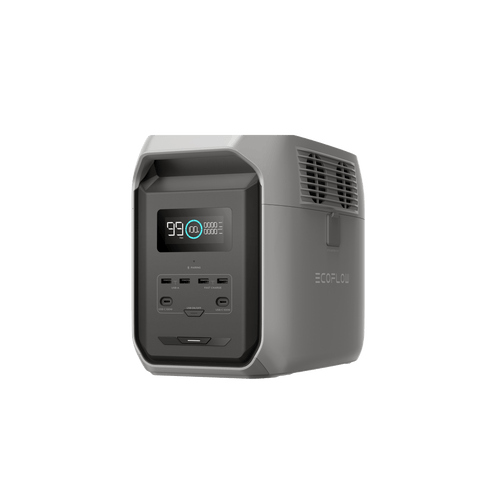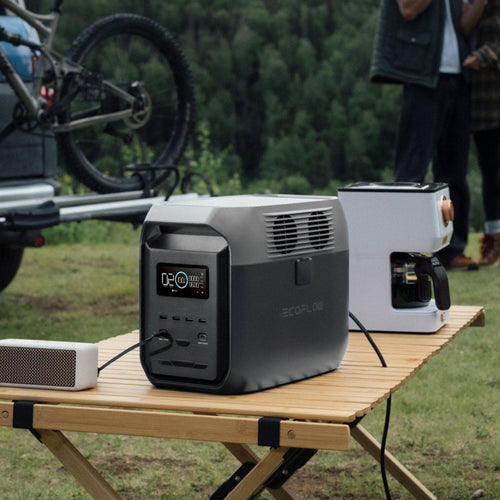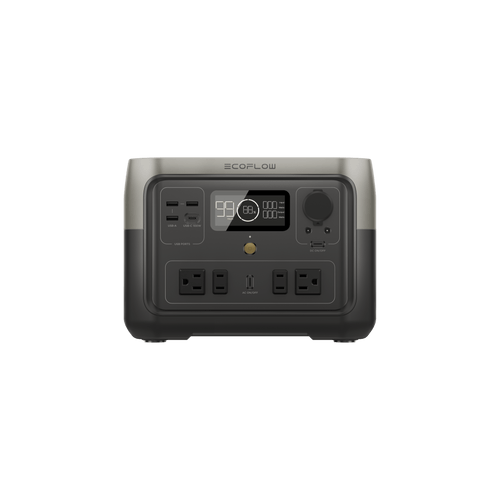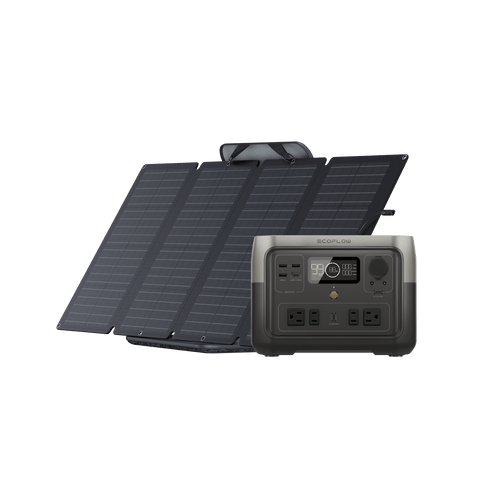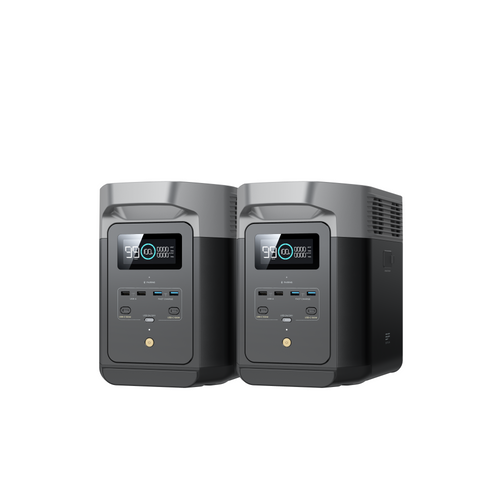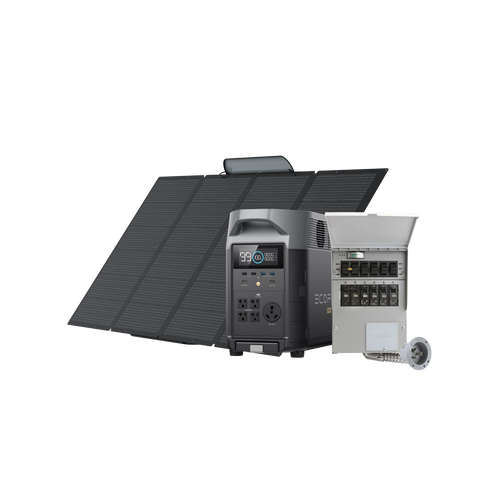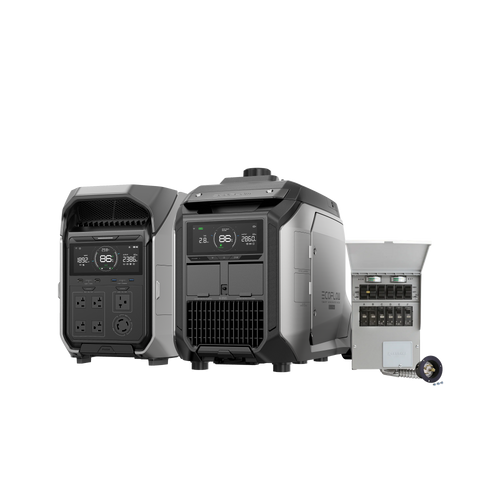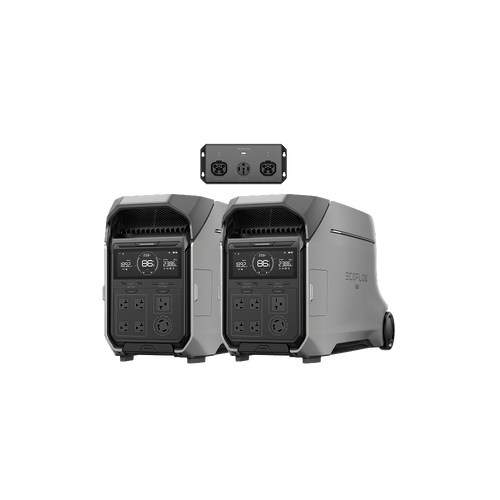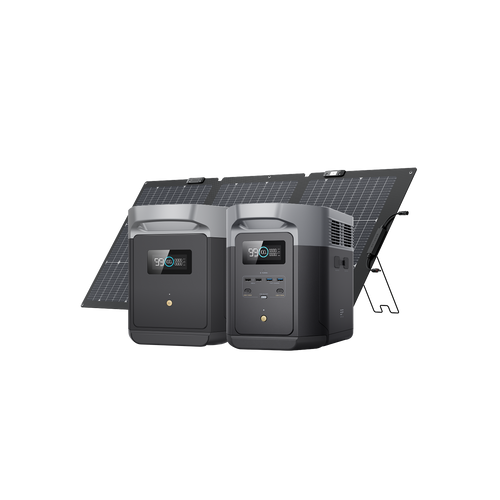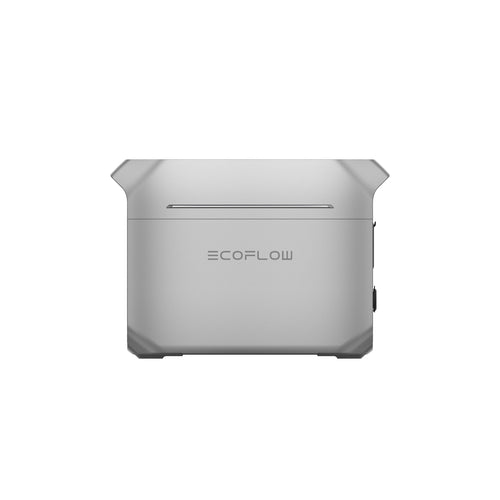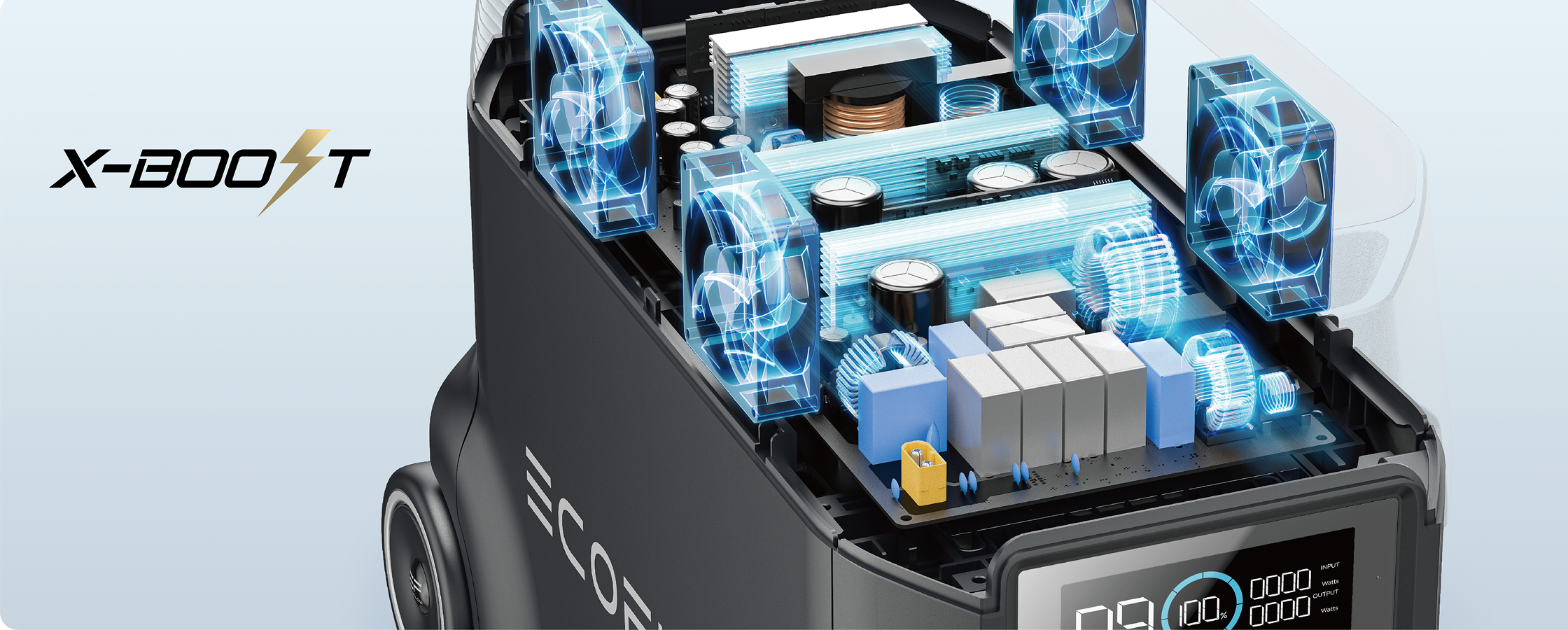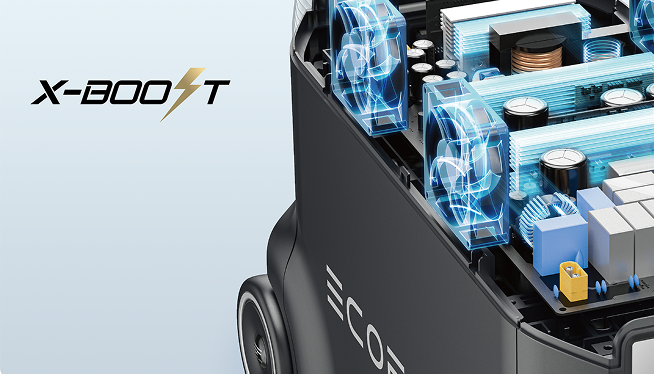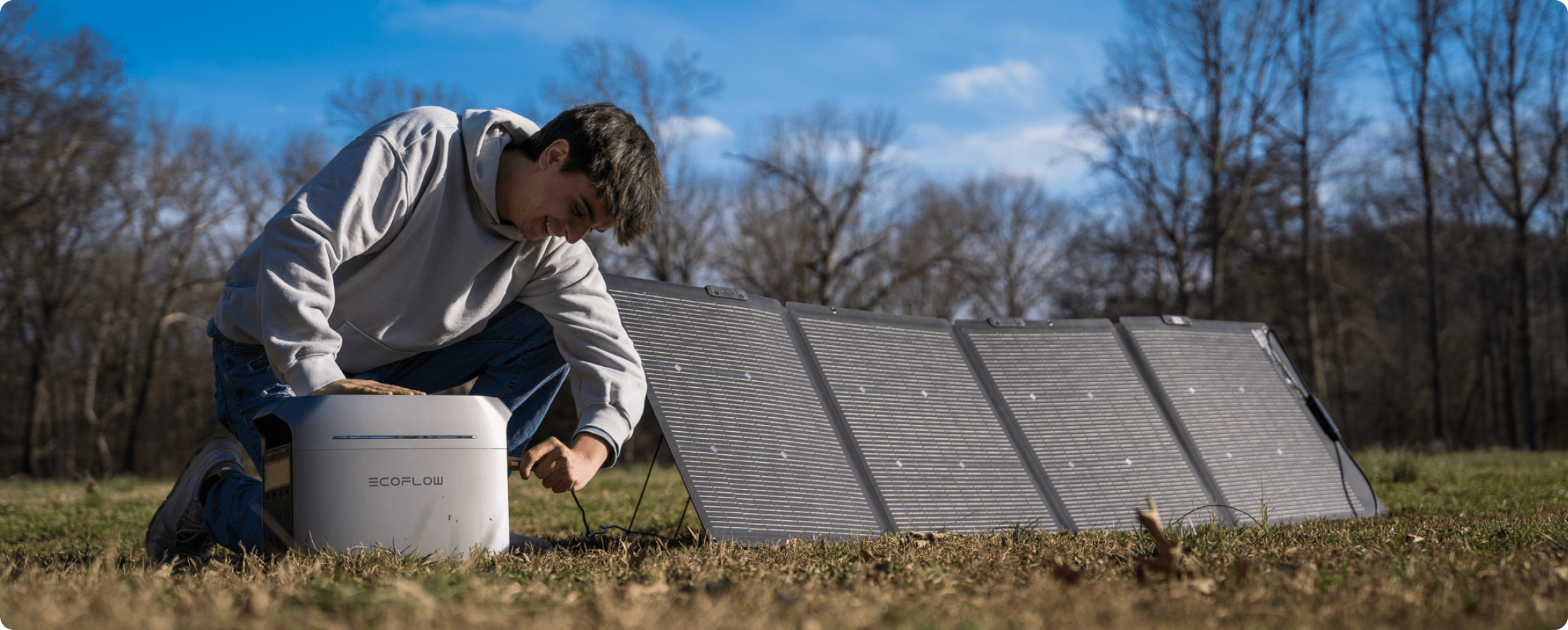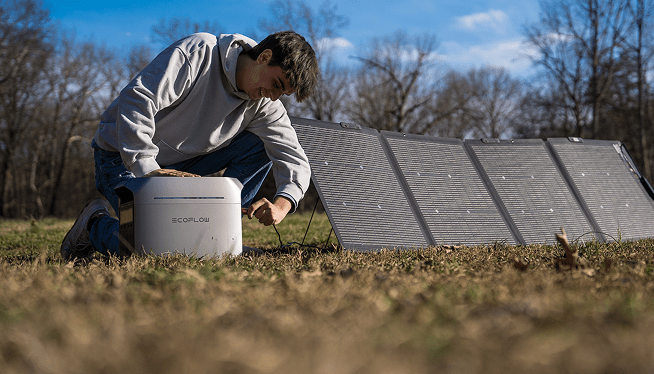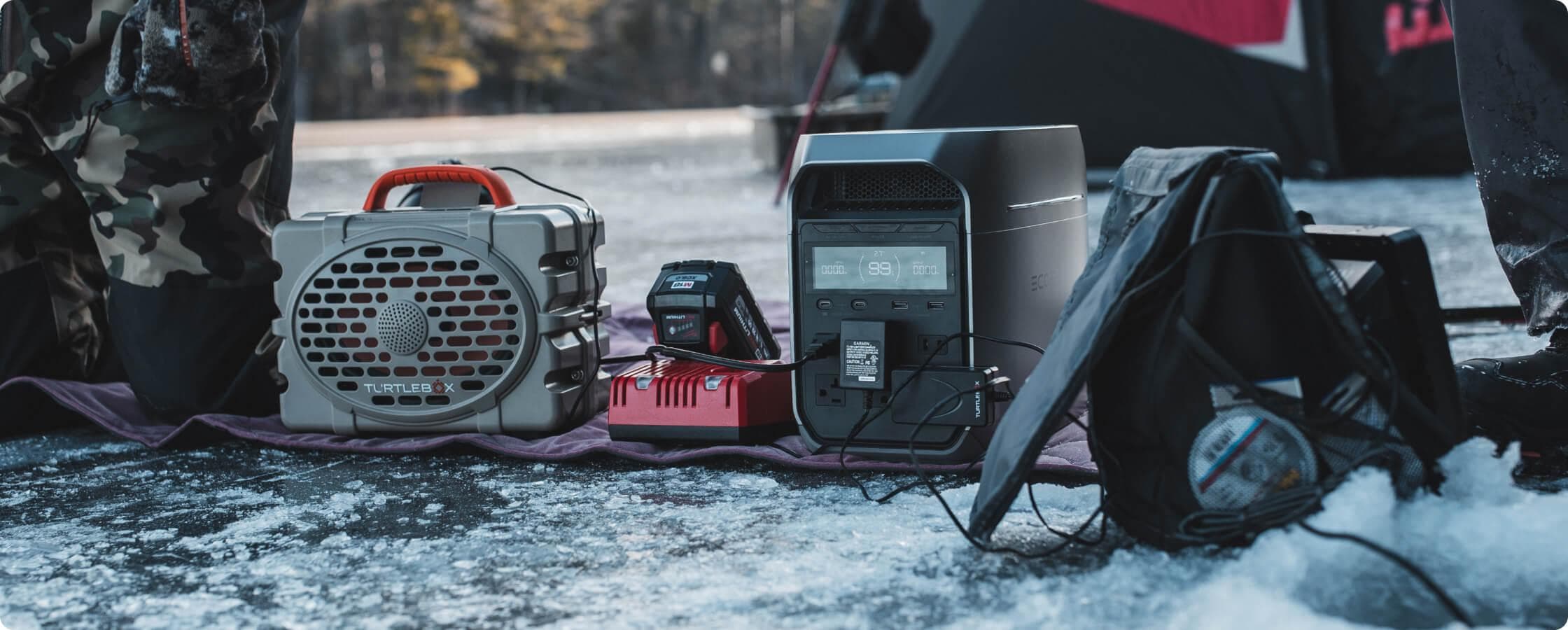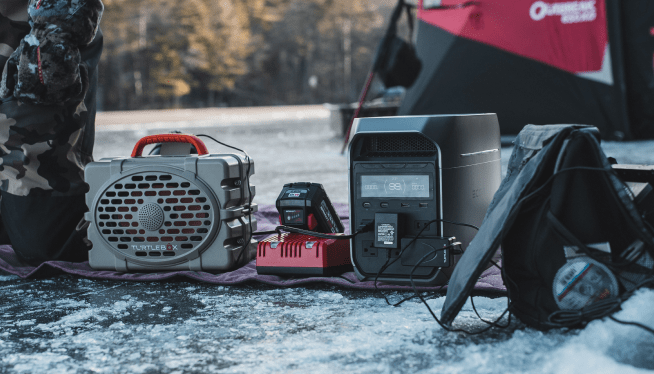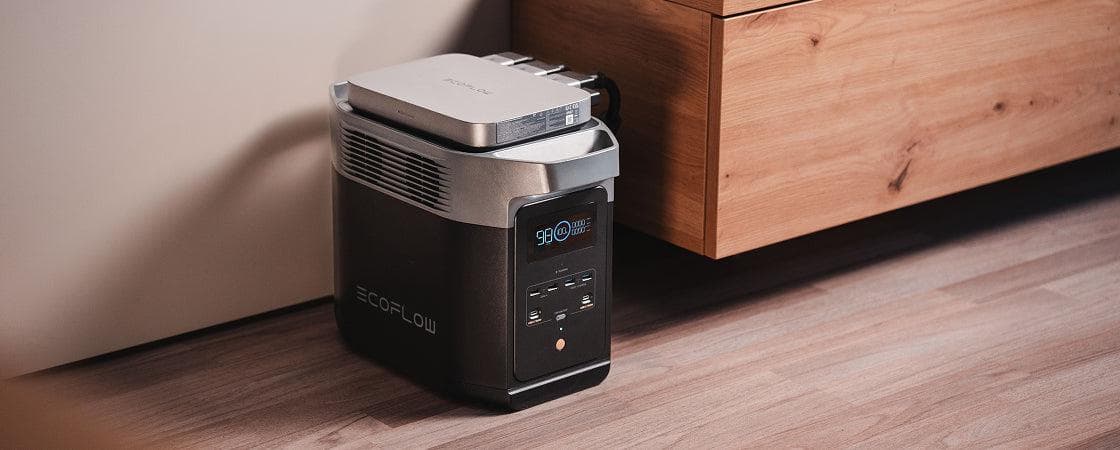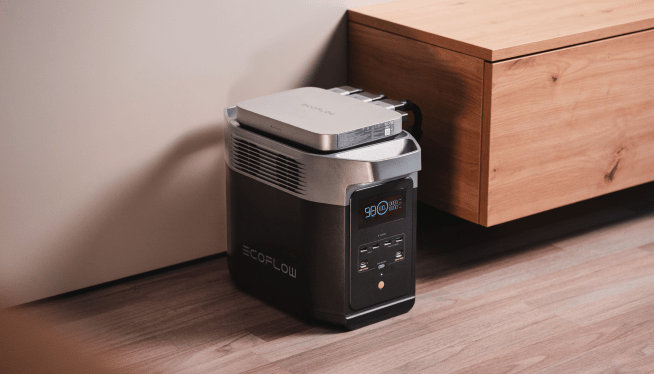Most Popular Solar Generators
How Does a Solar Generator Work?
Solar generators produce electricity by capturing solar energy with solar panels and storing it in a solar battery for immediate or later use. The built-in inverter converts direct current (DC) power stored in the LiFePO4 battery to alternating current (AC) household electricity to run high-wattage appliances and personal devices. Depending on whether you choose a compact RIVER Series portable power station or a more robust DELTA Series solar generator, you can power anything from outdoor adventures to an entire home or cottage off-grid.

*Note: The fastest full charge time is estimated based on the maximum input of the solar panel(s) recommended for purchase in the product portfolio.
Frequently Asked Questions
Are Solar Generators Worth It?
Whether you’re concerned about home energy security, need reliable off-grid portable power, or are looking to save money on electricity bills, EcoFlow solar generators can provide enough electricity for a road trip or run your whole home. EcoFlow RIVER 3 Plus provides UPS backup for computers in your home office and is compact enough to fit in your backpack. EcoFlow DELTA Pro 3 and DELTA Pro Ultra provide enough AC output, battery storage capacity, and solar panel charging input to power almost any home. EcoFlow’s whole-home backup generators offer multiple options for generating and storing electricity, including solar panels, gas, propane, or inverter generators, household (AC) power, 800W alternator charging, and more. Once you achieve solar payback, money saved on bills is money earned. Because there are no ongoing fuel costs, solar and gas generators offer very different ROI profiles—solar generators typically provide much better returns over the mid-to-long term.
How Is Electricity Generated from Solar Energy?
All solar panels or other PV modules that generate electricity from sunlight use the photovoltaic (PV) effect. Today, over 90% of solar panels are made with multiple polycrystalline or monocrystalline photovoltaic cells, which harvest photons from visible light and convert solar energy into DC electricity. In grid-connected solar power systems, a solar inverter converts DC into AC (household) electricity for immediate consumption or transmission to the utility grid. Off-grid and hybrid solar systems — like EcoFlow DELTA Pro 3 — direct DC power from PV modules through a charge controller for storage in a solar battery, and the inverter converts DC to AC for immediate use.
Are Solar Generators Safe?
Solar generators are safe, especially compared to traditional fossil fuel generators. They don't emit deadly gases like carbon monoxide or use flammable fossil fuels to generate power. Solar generators use photovoltaic panels (PV modules) to absorb sunlight and convert the energy into DC electricity. The DC power is stored in a state-of-the-art battery and converted to AC (household) electricity on demand for immediate use. Unlike gas generators, you can operate solar generators inside your home. Since they’re whisper quiet, you can even run one in a bedroom, and it won’t disturb your sleep.
How Does a Solar Generator Work?
A solar generator is an all-in-one solution for storing the electricity generated by PV modules, like portable or mountable solar panels. For example, EcoFlow DELTA series solar generators have all of the necessary balance of system components for residential solar power built in, including a charge controller, solar inverter, solar battery, and advanced battery management system. Off-grid and hybrid solar systems require the above components to operate. On-grid solar panel systems only require a solar inverter, but grid-tied solar panel systems don’t work during blackouts. They shut down automatically and remain offline for the duration of any power outage.
Can a Solar Generator Power a House?
Yes. A whole-home solar generator like EcoFlow DELTA Pro Ultra offers enough AC output and modular storage to power almost any home during extended power outages. With up to 90kWh of LFP battery storage, 21.6kW of AC output, and a maximum solar charge input of 16.8kW, you have the option to live completely off-grid indefinitely. To determine what size solar generator you need to run your home, calculate the total energy usage requirements of the appliances you want to operate simultaneously. Don’t forget to factor in starting watts (surge power) — a requirement for many motor-driven appliances. Next, determine your battery storage capacity (kWh) and electricity generation goals, factoring in peak sunlight at your location. As long as the AC output and storage capacity are sufficient to meet your household needs, a solar generator and PV modules with a combined rated power wattage that’s enough to keep the solar battery charged can power your whole home.
What Size Solar Generator Can Run Your AC and Central HVAC Systems?
When sizing a solar generator to run your AC or other motor-driven appliances like fridges and freezers, there are two key factors to consider: starting wattage and running wattage. Fortunately, EcoFlow’s solar generators — like DELTA Pro 3 — deliver up to twice their AC output as surge power, making it easy to start air conditioners and other large appliances. DELTA Pro 3 offers 4000W of continuous AC output, 6000W with X-Boost, and 8000W starting watts — more than enough to run an AC unit, refrigerator, and multiple high-wattage appliances at the same time. Thanks to its proprietary X-Boost technology, it can power up to 6000W of appliances simultaneously — 50% above its continuous output.
Solar vs. Gas Generators? What’s Better for Home Backup Power?
If you live in a location that receives more than 3 or 4 hours per day of peak sunlight, a solar generator likely beats a gas generator for home use by every metric except price. Despite the higher upfront investment, solar generators have no ongoing fuel or maintenance costs. Once you achieve solar payback, you start making money by saving on electricity bills. Solar generators also offer up to double the starting power of gas generators, making them ideal for high-wattage appliances. Over the mid-to-long term, solar generators offer a much better return on investment than gas.
What Size Solar Generator Should I Get?
Solar generators come in all shapes and sizes. You can take an EcoFlow RIVER Series solar generator and 60W portable solar panel backpacking or use one of the EcoFlow DELTA Pro series for whole-home backup. Size may refer to the dimensions and weight of the product — essential considerations for portability — or AC output (watts/kilowatts) and battery storage capacity (watt-hours/kilowatt-hours). Carefully consider your use case and how much power vs. portability you need. EcoFlow has a wide selection of portable power stations and solar generators to meet almost any need — from backpacking to powering an entire home off-grid.
Do Solar Generators Work in Extreme Cold?
Yes, but their performance is heavily impacted by two factors: battery chemistry and the ambient temperature where the solar battery is installed.
Average Temperature Range by Battery Type (°C) The Lithium Iron Phosphate (LiFePO4/LFP) batteries in EcoFlow solar generators and portable power stations offer a wider range of recommended temperatures than traditional Lithium-ion (Li-ion) or Lithium Nickel Manganese Cobalt (NMC/NCM/LNMC) batteries, particularly for charging and storage.Additionally, LFP batteries are not at risk for thermal runaway, which can cause other Li-ion battery types to catch fire or explode in extreme heat.If you’re looking for an off-grid system for year-round use in your home, cottage, or cabin, EcoFlow DELTA Pro Ultra gives you even more flexibility. With heating and cooling systems built in, it’s suitable for sheltered outdoor use in Canadian winter cold and summer heat.
How Does Temperature Affect Solar Generators?
The recommended charging, discharging, and storage temperatures vary by battery type, with LiFePO4 providing the most flexibility with charging temperatures from -10°C to 55°C and discharging (operating) temperatures from -20°C to 60°C. Even in a basement, that should give you enough flexibility to run an EcoFlow solar generator all winter or summer long. Unlike gas or inverter generators, EcoFlow power stations and solar generators are whisper-quiet and safe for indoor use.
How Does Temperature Affect Solar Panel Efficiency?
Solar panel efficiency is also impacted by temperature, but not in the way many people think. PV modules generate DC electricity from sunlight, not from heat. In parts of Canada, such as Toronto, where temperatures can exceed 40° during summer heatwaves, solar panels actually become less efficient the hotter they get. The ideal temperature for solar panel efficiency is 25°C or lower, which makes much of Canada’s varying climates well-suited for home solar systems. Sub-zero temperatures do not significantly impact solar panel efficiency. However, shorter winter days mean you’ll generate less electricity on average than in the summer months. Carefully evaluate peak sunlight hours at your location to inform your purchase decision.
Solar Generators vs. Standby Generators: Which is Best for Whole Home Backup?
Standby or portable generators that run on gas or propane (LPG) have long been the traditional choice for Canadians who live in rural areas that suffer frequent power outages or for people who live off-grid. However, thanks to improvements in solar generator technology and falling prices, solar panel arrays with home battery storage are becoming an increasingly popular choice. Fossil fuel generators must be operated outdoors at a safe distance from doors and windows. Gasoline or diesel freezes or gels in cold temperatures. Natural gas is rarely an option in rural or remote locations. Propane standby generators are typically the best fossil fuel choice for Canadian climate extremes, but the tank has to be refilled frequently, exposing you to rising and ongoing fuel costs. EcoFlow solar generators produce clean, renewable electricity year-round anywhere there’s sunlight. With multiple power station recharging options, including Smart Generators (Dual Fuel) that run on gas or propane, vehicle alternator charging, and household (AC) electricity, you’ve got multiple options to stay powered year-round, not just solar panels.
What’s the Best Solar Generator for Off-Grid Cottages and Cabins in Canada?
The two most critical considerations in choosing the best portable power station or solar generator for your cabin or cottage are how much electricity you need to run all your appliances, and HVAC systems (watts/kilowatts) and how long you want to be able to operate them between charges (watt-hours/kilowatt-hours). First, calculate how much electricity in watts or kilowatts it takes to start and run everything you want to start and run simultaneously. Next, estimate your energy consumption in watt-hours or kilowatt-hours (Wh/kWh) while factoring in how much electricity you can expect your solar panel array to generate at your location at the time of year you need power for, based on historical data. EcoFlow’s DELTA Series solar generators are ideally suited to meet your off-grid cottage or cabin needs.
Can You Take a Solar Generator on Boat or Canoe Trips?
EcoFlow RIVER Series solar generators are ideally suited to provide off-grid power on small boat or canoe trips. Recharge your personal devices on board or run camping appliances wherever you pitch your tent. Exploring the Great Lakes and other waterways by canoe or boat is a proud Canadian tradition that goes back hundreds of years. Today, you can recharge your phone, laptop, or tablet in even the most remote national or provincial parks. EcoFlow portable solar panels are foldable and lightweight, so you’ll have no trouble staying afloat. With an IP68 waterproof/dustproof rating, they’re built to last and perform in the most extreme weather. You’ll need to keep the portable power station relatively dry, but it’s safe for sheltered outdoor use in most conditions.






